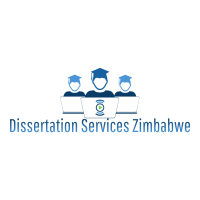📝 AI and the Academic Integrity Debate: Rethinking Dissertation Writing in the Digital Age
In an era defined by digital disruption, dissertation and thesis writing, once the solitary marathon of the scholarly mind, is undergoing a profound transformation. The rise of AI writing tools like ChatGPT, Grammarly, and paraphrasing software has ignited an urgent debate in universities around the world: What does originality mean in the age of artificial intelligence?
📌 The Traditional Ideal: Dissertation as a Rite of Passage
For decades, the dissertation has been seen as the academic pinnacle, proof of a student’s research independence, critical thinking, and mastery of their field. It’s not just a paper; it’s a milestone, often involving months or years of reading, experimentation, analysis, and writing.
But with the rise of sophisticated AI tools, this process is no longer purely human-driven. Students now have access to grammar correction bots, citation generators, auto-summarizers, and even full-on AI co-writers. That convenience, however, comes with a serious academic integrity dilemma.
🤖 Enter AI: A Helper or a Shortcut?
AI tools can assist in:
- Structuring arguments
- Rewriting sentences for clarity
- Generating citations
- Providing suggestions on literature
And this is where it gets tricky.
At what point does “support” become “substitution”? Is a thesis still your own work if half the content is machine-suggested? Institutions are scrambling to define this line, and students are often caught in the grey zone, unsure of what’s acceptable and what’s academic misconduct.
🚨 Universities Respond: From Bans to Balance
Some institutions have tried banning AI outright. Others are integrating it into research writing modules, encouraging ethical use while training students to develop critical skills AI cannot replicate (like argumentation, evaluation, and synthesis).
The emerging best practice? Transparency. When AI is used, it should be acknowledged, just like you would a research assistant or a software package.
💡 A New Skillset for a New Era
Rather than fearing AI, students can benefit by learning to use it responsibly:
- Use AI to generate ideas, not finished paragraphs.
- Run drafts through tools for grammar, but keep your academic voice.
- Don’t rely on AI to understand your sources, read them yourself.
- Combine human insight with tech to enhance, not replace, critical thinking.
Just as calculators didn’t end mathematics, AI won’t end dissertation writing. But it does demand a new academic literacy.
🔮 What the Future Looks Like
As AI continues to evolve, the dissertation of the future may look different, more multimedia, more interactive, or even collaborative with digital tools. But at its core, it must still reflect a student’s intellectual journey, not just their ability to operate software.
Whether you’re writing your undergraduate capstone or a doctoral thesis, remember: authentic scholarship still matters. And in a world flooded with machine-generated content, your human perspective is more valuable than ever.
Final Thought:
Academic integrity isn’t about resisting technology, it’s about using it wisely. The smartest scholars in this AI age won’t be those who avoid the tools, but those who understand when—and how—to use them without losing their own voice.
Is it Safe to Use AI to Write Your Dissertation?
Cloud Computing Dissertation Topics
Cybersecurity Dissertation Topics
Journalism and Media Studies Dissertation Topics
Difference between a measure and an indicator
Email: consultant@dissertations.co.zw

